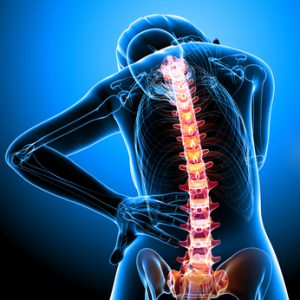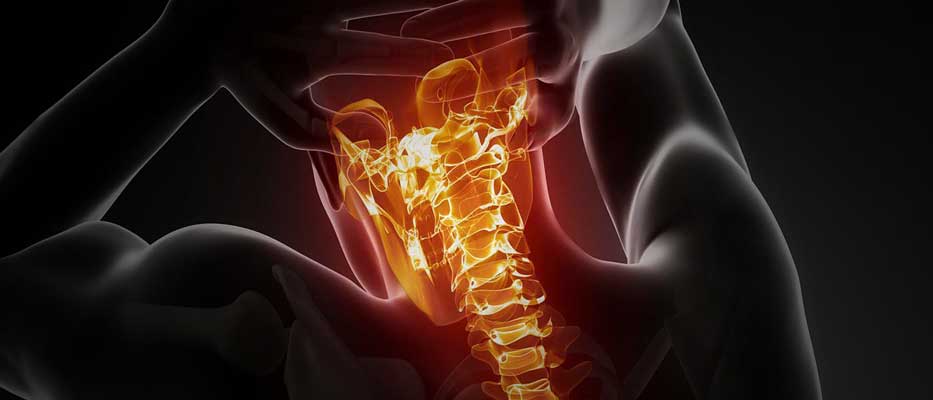Understanding the implications of not consulting an accident doctor for whiplash following a car accident is crucial. Our aim is to provide comprehensive details regarding the symptoms, treatment options, and other vital facts about whiplash. This insight underscores the importance of seeking medical attention for whiplash to prevent long-term consequences.
What is Whiplash?
Whiplash is a neck injury resulting from forceful, rapid back-and-forth movement of the neck, much like the motion of cracking a whip. This type of injury most commonly occurs during rear-end automobile collisions when the sudden impact causes the head to jerk backward and then forward, stretching and tearing the muscles and tendons in the neck. However, whiplash can also result from physical abuse, sports injuries, amusement park rides, or other traumas that cause similar neck motion.

The severity of whiplash can vary greatly. In some cases, it is a relatively mild condition that improves within a few weeks with proper care and treatment. In more severe instances, whiplash can cause prolonged periods of pain, discomfort, and reduced mobility. Beyond the physical symptoms, which include neck pain, stiffness, headaches, and dizziness, whiplash can also lead to significant interruptions in daily life and activities.
Due to the nature of the injury and the potential for delayed symptoms, medical evaluation after an accident that could cause whiplash is crucial. Early diagnosis and treatment can improve the recovery outcome, helping to manage pain and restore range of motion more effectively.
Why people don’t get medical treatment for whiplash.
One of the primary reasons people skip out on seeing a doctor is a fundamental misunderstanding of whiplash. Often perceived as just a minor “stiff neck” that will heal on its own, the potential severity of whiplash injuries is grossly underestimated. This misconception can lead to untreated conditions that may evolve into chronic issues.
Delayed Symptom Onset
Whiplash is sneaky; its symptoms might not surface immediately after an accident. It’s not uncommon for individuals to feel perfectly fine in the moments and even days following an incident, only to be hit with pain, stiffness, or other symptoms down the line. This delay can create a false sense of security, leading many to believe they’re uninjured.
Fear of Medical Bills
Let’s face it: medical care can be expensive, and the fear of accumulating debt from treatment and diagnostics is a real concern for many. This financial fear can deter people from seeking the medical attention they need, especially if they’re uninsured or underinsured.
Busy Lives
We live in a hustle culture were taking time off for medical appointments can seem like a luxury. Many worries about the impact on their job, caregiving responsibilities, or daily tasks. This “I’ll just push through it” mentality can prevent timely medical evaluations.
Hoping for Natural Recovery
A common belief is that the body can heal itself without intervention. While this is true for some minor injuries, whiplash can involve complex issues within the neck that require professional treatment to heal correctly and fully.

Whiplash Symptoms that you should look for.
Whiplash is an injury to the neck caused by its sudden and forceful back-and-forth movement, akin to the cracking of a whip. This type of injury is most associated with rear-end car accidents but can also result from sports accidents, physical abuse, or other trauma. The symptoms of whiplash may not appear immediately; they can take several days to develop. Here’s a rundown of the typical symptoms associated with whiplash:
- Neck Pain and Stiffness: This is the most common symptom. The pain might worsen with movement, and you might find your range of motion is limited.
- Headaches: Often starting at the base of the skull and moving towards the forehead.
- Shoulder, Upper Back, or Arm Pain: Pain and discomfort can spread beyond the neck to the shoulders, upper back, or even down the arms.
- Tingling or Numbness: Some people experience a tingling sensation or numbness in their arms, hands, or shoulders.
- Dizziness: A feeling of lightheadedness or vertigo can accompany a whiplash injury.
- Fatigue: People often feel more tired than usual after sustaining a whiplash injury.
- Blurred Vision: Some individuals might experience blurred vision as a symptom of whiplash.
- Ringing in the Ears (Tinnitus): A less common symptom, but some people report a ringing in their ears following an injury.
- Sleep Disturbances: Difficulty sleeping or staying asleep can be a consequence of whiplash.
- Irritability: Mood changes, including becoming easily irritated, can occur.
- Difficulty Concentrating: Whiplash can affect your cognitive functions, making it hard to focus or concentrate.
- Memory Problems: Some people might experience memory issues following the injury.
- Depression: In some cases, the ongoing pain and discomfort can lead to feelings of depression.
It’s crucial to seek medical attention if you experience any of these symptoms following a car accident or other incident that causes rapid movement of your head and neck. While many symptoms of whiplash are manageable and may resolve on their own, professional assessment and treatment can prevent the condition from worsening and help ensure a quicker, more comfortable recovery.
Treatment options for Whiplash
Depending on the type of whiplash that you have, there are different treatment options. Your accident doctor will normally suggest the best treatment option for you after he has diagnosed your whiplash. The other option that you can consider is going to a chiropractor that is going to treat the symptoms with natural healing methods. Going for an injury massage can also relieve some of the symptoms of whiplash.

Chiropractic Care
Chiropractic care is proven to help victims of whiplash recover using minimally invasive procedures.
Physical therapy
Physical Therapy, much like chiropractic care, will help relieve the symptoms of whiplash and help alleviate the pain associated with the symptoms.
Primary Care Physician
Although some people go to their Primary care doctor, we generally don’t see that as a viable option. They usually only give pain killers and muscle relaxers to deal with the pain.
However, you should make sure that you are getting the right diagnoses first before you consider your treatment options. You don’t want to make a mistake and worsen your injury by taking the wrong treatment option.
Dangers of Untreated Whiplash: Long-Term Effects
Whiplash is often the silent aftermath of car accidents, physical confrontations, and various forms of trauma that go unnoticed and untreated. While it might initially manifest as a mere inconvenience, the long-term effects of untreated whiplash can unfold into a complex web of health issues that extend far beyond neck pain.
Understanding these potential long-term effects is crucial for anyone who has experienced a rapid jolt to the neck, encouraging timely medical intervention and highlighting the importance of addressing whiplash quickly.
The journey of untreated whiplash can lead down a path paved with chronic conditions and diminished quality of life. Here’s what lurks beneath the surface:
Chronic Neck and Back Pain
The most common and immediate symptom of whiplash, neck pain, can evolve into constant pain if left untreated. This isn’t just about a stiff neck; chronic pain can become a barrier to daily activities, work, and even simple movements that once were taken for granted.
Persistent Headaches and Migraines
A frequent but often overlooked aftermath of whiplash, headaches can transition from occasional nuisances to constant afflictions. Migraines can be debilitating, affecting one’s ability to function in everyday life.
Cognitive and Emotional Toll
The impact of untreated whiplash isn’t limited to physical symptoms. Cognitive effects, such as memory problems, concentration issues, and mental fog, can emerge, hindering personal and professional growth. Moreover, chronic pain and ongoing discomfort can lead to emotional distress, including depression and anxiety, further complicating the recovery process.
Decreased Range of Motion
The flexibility and movement of your neck and shoulders can significantly diminish, making it challenging to perform tasks that require turning your head or lifting your arms. This limitation can affect driving, sports, and even simple household chores.
Dizziness and Vertigo
Long-term dizziness and a sense of spinning (vertigo) are not uncommon for those with untreated whiplash. These symptoms can be not only disorienting but also dangerous, increasing the risk of falls and injuries.
Degenerative Disc Disease
Over time, untreated whiplash can accelerate the wear and tear on the cervical spine, leading to degenerative disc disease. This condition can cause persistent pain, further restrict movement, and necessitate more intensive treatments or surgeries.
Whiplash: The Path to Prevention
The list of potential long-term effects underscores the importance of seeking medical attention following any accident that could lead to whiplash. If you suspect you’ve experienced whiplash, consider these steps to ensure your health is not put at risk.
- Prompt Medical Evaluation: Don’t wait for symptoms to worsen. Seek an accident doctor’s opinion immediately after an accident, even if you feel fine. Even if symptoms seem mild or absent, getting checked out by a healthcare professional can uncover hidden injuries.
- Follow Through with Treatment: Whether it’s physical therapy, chiropractic care, or prescribed exercises, adhering to a treatment plan is key to recovery.
- Stay Informed: Educating yourself about whiplash and its potential impact empowers you to make informed decisions about your health.
- Explore Treatment Options: There are treatments available for every budget and lifestyle, including insurance-covered care, payment plans, and sliding scale services.
By understanding the serious, long-term implications of this condition and taking timely, proactive steps towards treatment, individuals can avoid the hidden dangers of untreated whiplash and pave the way for a healthier future.
Remember, the impact of whiplash extends beyond the physical; it’s a multidimensional challenge that requires a comprehensive approach to overcome. Prioritize your health, seek support, and take control of your recovery journey today.
Encouraging everyone to prioritize their health in the face of potential whiplash injuries not only supports individual well-being but also fosters a community mindset where seeking help is seen as a strength, not a weakness. By addressing the common reasons people avoid treatment, we can shift towards a more proactive and health-conscious approach to post-accident care.




 Since 2012, Accident Doctor has been dedicated to connecting personal injury patients and attorneys with qualified physicians who specialize in treating accident-related injuries. Our nationwide network includes experienced medical professionals who provide care for individuals involved in car accidents, motorcycle accidents, truck and tractor-trailer collisions, slip and fall incidents, and workers’ compensation cases.
Since 2012, Accident Doctor has been dedicated to connecting personal injury patients and attorneys with qualified physicians who specialize in treating accident-related injuries. Our nationwide network includes experienced medical professionals who provide care for individuals involved in car accidents, motorcycle accidents, truck and tractor-trailer collisions, slip and fall incidents, and workers’ compensation cases.